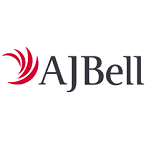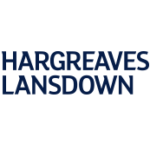To buy shares in the UK, you need a stockbroker like Hargreaves Lansdown, AJ Bell or interactive investor. You can compare the best accounts for buying shares below:
| Share Dealing Platform | Share Dealing Account Fee | Share Dealing Commission | GIA | ISA | SIPP | LISA | Customer Reviews | More Info |
|---|---|---|---|---|---|---|---|---|
 | £4.99 Monthly | £3.99 | ✔️ | ✔️ | ✔️ | ❌ | (Based on 1,123 reviews)
| Visit Platform Capital at risk |
 | £0 | £3 | ✔️ | ✔️ | ✔️ | ❌ | (Based on 1,347 reviews)
| Visit Platform Capital at risk |
 | 0.25% - 0% | £5 – £3.50 | ✔️ | ✔️ | ✔️ | ✔️ | (Based on 1,105 reviews)
| Visit Platform Capital at risk |
 | 0.45% - 0% | £11.95 – £5.95 | ✔️ | ✔️ | ✔️ | ✔️ | (Based on 1,774 reviews)
| Visit Platform Capital at risk |
 | 0.4% – 0.08% | £1 – 0.08% | ✔️ | ✔️ | ✔️ | ❌ | (Based on 125 reviews)
| Visit Platform Capital at risk |
 | £24 - £0 Quarterly | £0 | ✔️ | ✔️ | ✔️ | ❌ | (Based on 695 reviews)
| Visit Platform Capital at risk |
What Happens When You Buy A Share?
Shares represent ownership in a company. When you buy a share, you become a shareholder and own a small part of that business. Public companies list their shares on stock exchanges like the London Stock Exchange (LSE), and anyone can buy or sell them through a stockbroker.
Once you have bought a share in a company, your stock broker will keep it in a nominee account and collect dividends and enable you to sell it in the future.
Charges Associated with Buying Shares
When you invest in shares, you’ll typically encounter a few common costs:
- Dealing commission: A flat fee for placing a trade, usually between £4–£12 per trade, depending on the broker.
- Stamp Duty Reserve Tax (SDRT): A 0.5% tax on UK share purchases (not charged on ETFs or foreign shares).
- Platform/account fees: Some brokers charge monthly or annual fees for holding an investment account (e.g. £0–£10 per month).
- Foreign exchange fees: If you buy shares listed overseas, there may be a currency conversion fee (usually 0.5%–1.5%).
What Sort of Returns Can You Expect When Buying Shares?
Returns from shares generally come from two sources:
- Capital Growth: When a company grows and becomes more valuable, its share price tends to rise. You make a profit if you sell at a higher price than you paid.
- Dividends: These are cash payments made by companies to shareholders, typically from profits. UK dividend yields can range from 1% to 6% depending on the company and market conditions.
While the average long-term return from shares is around 5–7% annually after inflation, actual returns vary year to year. Some years may bring losses, while others deliver strong gains.
Over the long term, UK shares have historically returned about 5–7% per year after inflation, but this isn’t guaranteed.
What Are the Risks Of Buying Shares?
Investing in shares comes with risks:
- Volatility – Share prices can rise and fall sharply due to news, market sentiment, or economic events.
- Company risk – If a company performs badly or goes bankrupt, you could lose your entire investment.
- Market risk – Broader market downturns (like during recessions) can drag down all shares.
- Liquidity risk – Some shares are hard to sell quickly without affecting the price.
- Currency risk – If you invest in foreign shares, exchange rate movements can affect your returns.
Important: Your capital is at risk. You may get back less than you invest.
How to Build a Diversified Share Portfolio
Diversification helps reduce risk by spreading your money across different investments. Here’s how to do it:
- Hold shares in different sectors – e.g. technology, healthcare, finance, consumer goods.
- Invest globally – Don’t just invest in UK shares; consider global markets via ETFs or funds.
- Mix asset types – Combine shares with bonds, property, or cash savings to balance risk.
- Use funds or ETFs – These automatically invest in dozens or hundreds of companies in one product.
- Avoid overexposure – Don’t put too much money in one stock, no matter how promising it looks.
In conculsion shares are a great investment that can often outperform passive investments like funds or index trackers, but only if you pick the right stocks.
If you are interested in researching the best stocks to buy, our stock market analysis covers some of the most popular stocks for investors in the UK.
